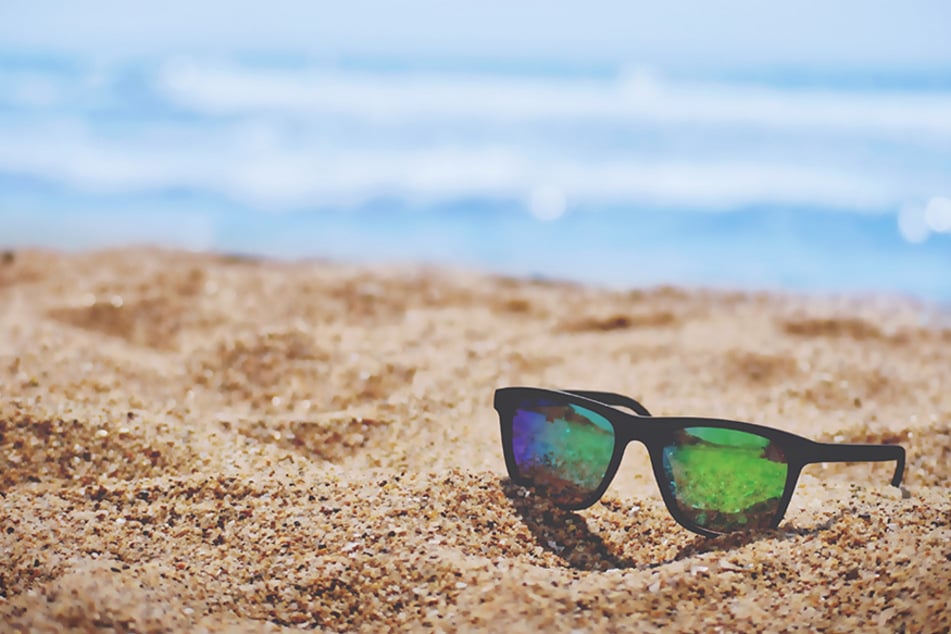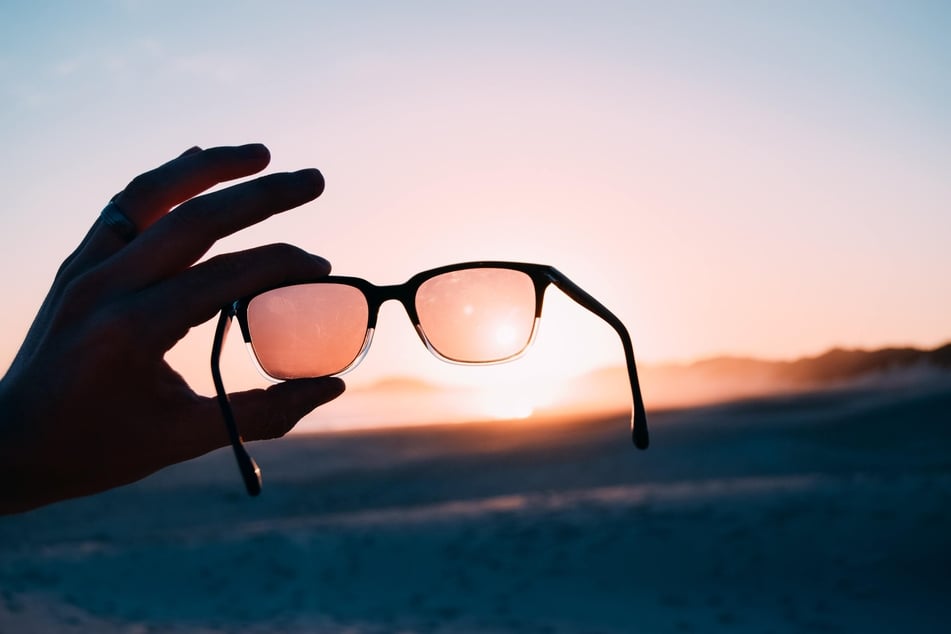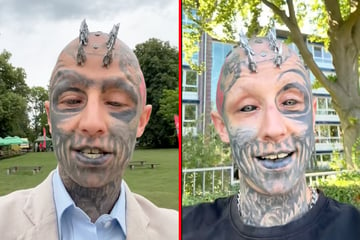Are my sunglasses protecting my eyes from UV rays?
Cheap or expensive glasses, light or dark lenses – none of that matters when it comes to how well your sunglasses protect your eyes from UV rays.

Severe pain, swelling, watering eyes and even a temporary reduction in vision: A day in the sun can be nice, but the symptoms you're likely to experience if your eyes get too much sunlight are definitely not.
Your sunglasses need to have a UV400 level to deliver enough protection against harmful UV light, according to the Professional Association of Ophthalmologists in Germany.
It's also sufficient if your sunglasses say "100% UV protection" or "UV absorption up to 400 nm." Alternatively, you can try a cap with a protective visor that has a UV index of three.
By all means, spend more on a nicer pair of sunglasses, but don't assume the price means better protection. In fact, even the cheapest pair of sunglasses from the pharmacy can have sufficient UV400 protection, according to the American Academy of Ophthalmology.
Don't assume polarization or dark lenses in your sunglasses will help protect the health of your eyes, either. Darker lenses do not mean more protection, the academy says, and the same goes for polarization, which itself does not provide UV protection, but merely reduces the glare from reflective surfaces like water.
While ophthalmologists say the color and darkness level won't change how well your eyes are protected, the size of the lens does, as smaller glasses won't offer you quite as much UV protection as larger ones.
In more southern countries and places by the sea or in the mountains, the eyes are particularly exposed to solar radiation, according to ophthalmologists.
Protecting your eyes from UV rays on vacation

Effectively, a good pair of sunglasses will protect the surface of your eyes from getting sunburned. But if your eyes are been exposed to too much UV radiation from the sun, you'll soon notice.
Aching eyes, a swollen conjunctiva, heavy tearing up of the eyes, and a temporary reduction in vision are all likely if your eyes are hit with too much sunlight. However, symptoms are likely to disappear after eight to 12 hours, ophthalmologists say.
If you wear contact lenses, ophthalmologists say you shouldn't just hit pause on your usual hygiene rules while on vacation, and be sure to pack cleaning and care products in your suitcase.
Even if you don't plan on wearing glasses, it can be handy to pack a pair. Your eyes may well be irritated or dried out in different weather conditions and prolonged exposure to air conditioning in the airplane or hotel.
In areas where air-conditioning systems are common, it's a good idea to bring a bottle of eye drops with you. According to the BVA, drinking plenty of fluids can also help.
If rely on eye drops and eye medicines, these should preferably be stored in a cool place to avoid heat.
Cover photo: Unsplash/@anagani_saikiran

